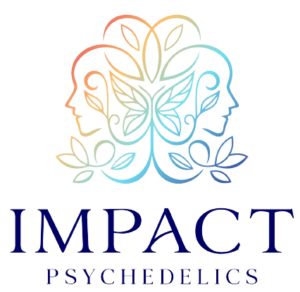
The Benefits of Ketamine: Here’s The Inside Scoop
Mental health issues can be like a powerful storm raging with no end in sight. It can feel like being trapped in an endless cycle of darkness that just keeps coming back. Ketamine therapy can be like a beacon of light, guiding the way out of the darkness and into a place of hope and healing. It has been shown to provide rapid relief from a wide range of mental health issues, including depression, anxiety, PTSD, and OCD.
In this post, we’ll discuss what ketamine is, how it works, the top ketamine benefits, and the risks associated with its use. We’ll also provide an overview of Impact Psychedelics’ commitment to safe and effective mental health treatments.
What is Ketamine?
Ketamine is a fast-acting dissociative anesthetic drug that has been approved for use in the medical field since 1970. It is most commonly administered via intravenous drip or intramuscular injection and it works by blocking certain receptors in the brain that are associated with pain and depression.
Ketamine therapy also made waves in the mental health field recently, as it is highly effective at treating a wide range of mental health conditions such as depressive symptoms, anxiety disorders, and post-traumatic stress disorder.
Brief History of Ketamine
The use of ketamine as a medical anesthetic was first discovered in 1962. It has since been used extensively in clinical settings, primarily for its ability to rapidly reduce sensations of pain, as well as its rapid onset and minimal side effects.
Ketamine therapy was first used for injured soldiers in World War II. After this, it was used in the veterinary science field and later as a treatment for chronic pain and depression.
Today, medics in the US Army give ketamine for pain relief due to battlefield injuries. While in the UK, ketamine therapy is regularly used as an anesthetic drug for children undergoing surgery as it is the only drug that has amnesic effects, hypnotic effects, and analgesic effects.
Medical Uses of Ketamine
Ketamine therapy is used to treat a variety of medical issues, including depression, anxiety, PTSD, and OCD. It has also been found to be helpful for patients suffering from chronic pain.
Ketamine can also be used to assist with pre-and post-surgical care. It is often used during the induction phase of anesthesia, as it affects the central nervous system and can reduce anxiety in patients who are undergoing surgery.
Understanding How Ketamine Works
Ketamine works by blocking NMDA receptors, which are responsible for regulating communication between nerve cells in the brain. It has been found to release a surge of glutamate, which are important for balanced mood regulation. This helps to reduce depression and anxiety symptoms by restoring a physiological balance, thus promoting an overall sense of well-being.
It also works by reducing the activity of certain brain cells, thus making it easier for people to relax and reduce their stress levels. This can help to improve sleep quality and reduce symptoms of insomnia.
Lastly, ketamine treatment has been linked to neuroplasticity, which can restore the synapses between brain cells, which has been linked to improved cognitive functioning.
This is unlike traditional antidepressants that work by targeting serotonin levels, which can take weeks or months to begin working. Traditional antidepressants have also been found to be less effective than ketamine treatments in treating severe depression or anxiety and do not have a restorative effect on the brain, resulting in a reduction of suicidal thoughts associated with major depressive disorder.
The Benefits of Using Ketamine
There are many benefits of ketamine therapy:
Rapid Onset of Effect
Ketamine therapy has been found to provide rapid relief from a wide range of mental health issues, including major depression, anxiety, PTSD, OCD, and other mental health conditions. Its fast-acting nature also makes it a good choice for those who are seeking immediate antidepressant effects.
For instance, patients who suffer from treatment-resistant depression with suicidal thoughts have reported feeling an improvement in their symptoms within hours of receiving ketamine.
Ketamine will also work faster compared to Esketamine, its nasal spray alternative. This is because it has 100% bioavailability compared to nasal spray (54%).
Long-Lasting Relief
Ketamine therapy has also been found to provide long-lasting relief from its targeted conditions, with studies showing that it can help to maintain symptom relief for weeks after the initial treatment.
Therefore, patients who suffer from treatment-resistant MDD who suffer from suicidal ideation had no reoccurrences for days compared to traditional treatments.
Minimal Side Effects
Ketamine therapy is generally well-tolerated, with few side effects reported. Common side effects include dizziness, nausea, and headache. Most of these can be managed with proper management and support from a qualified healthcare professional.
In addition, ketamine is may have an increased tolerance and physical dependence and can cause ketamine withdrawal symptoms.
Understanding the Risks of Using Ketamine
Though ketamine therapy is generally safe and effective, some potential risks should be taken into consideration.
Possible Side Effects of Ketamine
As with any drug, there are possible side effects associated with ketamine therapy. Common side effects include:
- Dizziness
- Nausea or vomiting
- Headache
- Anxiety and paranoia
- Changes in sensory perceptions, including visual or auditory hallucinations
- Blurred vision
- Disorientation
- Increase in heart rate, blood pressure, breathing, or body rate
In rare cases, ketamine can cause serious psychiatric symptoms such as hallucinations and delusions. Thus, it is important to be monitored closely by a qualified healthcare professional for any signs of these side effects.
Precautions To Take Before Using Ketamine
Before using ketamine, it is important to discuss with your healthcare provider if the drug is right for you. Your provider should also ensure that you are not taking any other medication or substance that may interact with ketamine, as this can increase the risk of side effects.
It is important to understand the possible risks associated with ketamine and follow all instructions provided by your healthcare provider.
Monitoring and Managing the Risks Associated With Ketamine Use
Patients who are using ketamine should be monitored closely by a qualified healthcare professional to ensure that the drug is being used safely and effectively.
Your provider should also be aware of any changes in your symptoms and any side effects you may experience. If you experience any serious side effects or worsening of symptoms, it is important to discontinue use and seek medical attention right away.
About Impact Psychedelics
Impact Psychedelics is a leading provider of ketamine therapy services. Our team of experts is dedicated to making ketamine therapy more accessible to those who are in need.
We specialize in utilizing ketamine-assisted psychotherapy to treat a variety of mental health issues and provide customized treatment plans tailored to each individual’s needs. We also offer educational resources and support to help our patients understand the risks associated with ketamine use.
If you or someone you know is considering using ketamine therapy, please contact us today to learn more. Our team is here to help you find the best treatment option for your unique needs.

